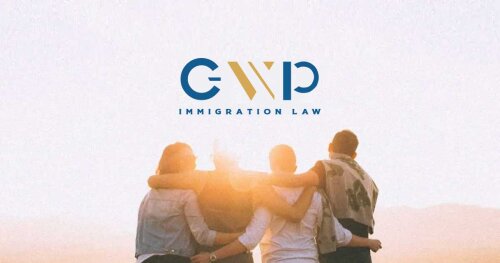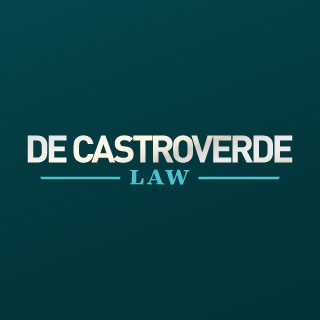Best Dependent Visa Lawyers in Las Vegas
Share your needs with us, get contacted by law firms.
Free. Takes 2 min.
List of the best lawyers in Las Vegas, United States
About Dependent Visa Law in Las Vegas, United States
Dependent visas allow family members - typically spouses and minor children - to live in the United States based on the immigration status of a primary visa holder. Immigration law in the United States is federal, which means the rules for who qualifies as a dependent and how to apply are set by federal agencies and statutes. If you are living in Las Vegas or anywhere in Nevada, you will follow the same basic federal procedures as elsewhere in the country, but local steps - such as obtaining a Nevada identification card, enrolling children in Clark County schools, or applying for state benefits - will involve state and local offices in and around Las Vegas. Common dependent classifications include H-4, L-2, F-2, J-2, K-2 and derivative beneficiaries on immigrant visas or adjustment of status applications.
Why You May Need a Lawyer
Working with an experienced immigration lawyer can be important because dependent visa matters often involve detailed eligibility rules, strict documentation requirements, and deadlines. You may need a lawyer in situations including:
- Applying for a derivative immigrant visa or adjustment of status after a family petition
- Seeking work authorization for a dependent spouse - for example, whether an H-4 spouse qualifies for an EAD
- Handling consular processing overseas or applying to change status while inside the United States
- Addressing inadmissibility or deportation risks due to criminal records, prior immigration violations, or medical grounds
- Filing waivers for unlawful presence or other grounds of inadmissibility
- Responding to a visa denial or Requests for Evidence from USCIS
- Protecting victims of domestic violence through VAWA petitions or U and T visas
- Managing family law issues - divorce, custody or child support - that affect immigration status or eligibility
- Coordinating complex cases involving multiple applicants, derivative benefits, or changes in sponsoring employer or petitioner
Local Laws Overview
Key local and state matters that may affect dependent visa holders in Las Vegas include:
- Federal primacy - Immigration status, visa classifications, adjustment of status and deportation are governed by federal law. Local offices cannot change federal eligibility rules.
- State and local identification - Nevada agencies such as the Nevada Department of Motor Vehicles set requirements for driver's licenses and state IDs. Some services require proof of lawful presence while others may have different eligibility rules. Expect to provide immigration documents when applying for an ID or license.
- Public benefits and healthcare - Eligibility for state and local public benefits is governed by a mix of federal and state rules. Some benefits are available to lawfully present dependents, while others are restricted. Programs administered at the state level include Medicaid and welfare benefits - check Nevada guidelines for lawful presence and documentation requirements.
- Education - The Clark County School District generally allows children to attend public school regardless of immigration status, but enrollment requires certain documents such as proof of residency and immunization records.
- Family law - Divorce, custody, and support matters are handled by Nevada state courts. Family court outcomes can affect immigration cases - for example, termination of a marriage may affect a spouse's derivative status. If you face domestic violence, Nevada courts and local service providers offer protections that can also support certain immigration remedies.
- Local service providers - Las Vegas has community organizations, nonprofit legal aid providers and law school clinics that assist immigrants. Local police and municipal agencies may have policies on cooperation with federal immigration authorities - practices vary, so ask about local procedures if you have concerns about enforcement or interactions with law enforcement.
Frequently Asked Questions
What is a dependent visa and who qualifies as a dependent?
A dependent is usually a spouse or an unmarried minor child who qualifies to derive immigration status from a primary visa holder. Common dependent categories include H-4 for H-1B dependents, L-2 for L-1 dependents, F-2 for F-1 student dependents, and J-2 for J-1 dependents. For immigrant petitions, dependents may be listed as derivative beneficiaries on family-based or employment-based petitions.
How do I apply for a dependent visa if the primary visa holder is in Las Vegas?
Processes vary depending on whether the dependent is inside the United States or abroad. If inside the U.S., a change of status or adjustment of status application through USCIS may be possible. If outside the U.S., the dependent will usually complete consular processing at a U.S. embassy or consulate abroad. The primary visa holder or petitioner must typically file the appropriate petition or include dependents on their petition, submit supporting documents, pay fees, and follow instructions from USCIS or the Department of State.
Can a dependent spouse work in the United States?
Work authorization depends on the visa type. L-2 spouses can generally apply for work authorization and often receive EADs without the same restrictions as other categories. H-4 spouses may apply for an EAD only if the H-1B principal meets certain requirements related to long-term residence processing. F-2 dependents are not authorized to work. J-2 dependents can apply for work authorization if the J-1 principal's program funding permits dependent employment.
What happens to a dependent visa if the sponsoring marriage ends in divorce?
Divorce can affect a dependent spouse's status. If the dependent's legal status derives solely from a current marriage, divorce may mean the dependent no longer qualifies for that status. In some situations, other immigration options may exist - for example, if the dependent is eligible for another visa, adjustment of status, self-petition under VAWA because of abuse, or has independent grounds for lawful status. Consult an immigration lawyer promptly if a marriage ends.
How do children born in the United States affect dependent status?
Children born in the United States are U.S. citizens by birth, regardless of their parents' immigration status. A U.S. citizen child can later sponsor a parent for lawful permanent residence when the child turns 21. Birth in the U.S. does not automatically change the parent child relationship for immigration purposes, but it does create a path for the child to sponsor a parent in the future.
What documents should I bring to a consultation with an immigration lawyer in Las Vegas?
Bring passports, current and prior visas, I-94 records, any approval notices (I-797), petitions and applications previously filed, marriage and birth certificates, divorce or death certificates for prior spouses if applicable, lists of travel history, employment letters, tax returns, pay stubs, and any documents related to criminal or arrest records if relevant. Certified English translations and copies are helpful. The more documentation you provide, the better the lawyer can assess your case.
What if my dependent visa application is denied?
A denial does not always end options. Depending on the reason, you may be able to respond to a Request for Evidence, file an appeal or motion with USCIS, reapply with corrected documentation, or pursue consular processing if the denial relates to change of status. If the denial involves inadmissibility, waivers may be an option. Consult an immigration attorney promptly to evaluate next steps and deadlines.
Are there local free or low-cost legal services in Las Vegas for dependent visa issues?
Yes. Las Vegas has nonprofit legal aid organizations, law school clinics and community groups that provide free or reduced-fee immigration assistance. These programs often have limited capacity and eligibility rules based on income or case type. If you cannot afford a private attorney, ask about legal aid providers, scheduled legal clinics, and accredited representatives who can offer assistance.
How long does it take to get a dependent visa or EAD?
Processing times vary widely by visa category, the type of application (consular processing, change of status, adjustment of status, EAD), current USCIS or consulate workload and whether additional evidence is requested. Some EADs take several months. Family-based immigrant cases can take months to years depending on visa availability and category. Check current processing times with the relevant federal agency and plan for potential delays.
Will applying for public benefits affect a dependent visa application?
Immigration officers may consider public charge issues for certain applications. Eligibility for public benefits and whether use of benefits will affect an immigration case depends on the program involved, the applicant's status, and current federal policies. Some benefits, such as emergency medical care, public school, and certain child services, are not considered in public charge determinations. Because rules change and consequences can be significant, talk to an attorney or a qualified benefits counselor before applying for benefits if you are unsure.
Additional Resources
Consider contacting the following types of organizations and agencies for information and help:
- U.S. federal agencies that regulate immigration processes - USCIS and the Department of State - for forms, filing instructions and current policies
- The Nevada Department of Motor Vehicles and Nevada state agencies for information on state ID and benefit eligibility
- Clark County School District for school enrollment and local education requirements
- Local nonprofit legal aid offices and immigration clinics - organizations in Las Vegas often provide low-cost or pro bono help for qualifying applicants
- Nevada State Bar for referrals to licensed immigration attorneys and to verify attorney credentials
- Community organizations and service providers that serve immigrant communities and can help with document preparation, translations and referrals
Next Steps
If you need legal assistance with a dependent visa in Las Vegas, follow these steps:
- Gather documents - passports, visa pages, I-94, marriage and birth certificates, prior immigration filings, tax records and any criminal records. Have certified translations for non-English documents.
- Identify what you need - do you need help applying, responding to a denial, filing for work authorization, or handling inadmissibility or deportation issues?
- Search for an immigration attorney or accredited representative - check qualifications, experience with dependent visa issues, client reviews and whether they are licensed by the Nevada State Bar or accredited by recognized bodies.
- Ask about fees and payment options - request a written fee agreement outlining services and costs. Ask whether limited scope representation is available if you only need help with part of the process.
- Use free resources if cost is a barrier - schedule intake with community legal aid, law school clinics, or nonprofit groups in Las Vegas to determine whether you qualify for pro bono or low-cost representation.
- Prepare for your consultation - bring your documentation and a concise timeline of events. Prepare a list of questions about eligibility, timelines, risks and next steps.
- Act promptly - immigration cases often have strict deadlines. If you receive a notice from USCIS, a consulate or a court, contact an attorney immediately to protect your rights and preserve options.
Getting accurate, timely legal help can make a critical difference in dependent visa cases. Local providers in Las Vegas can help you navigate both the federal immigration requirements and the state or local steps needed to live and work in Nevada while your case proceeds.
Lawzana helps you find the best lawyers and law firms in Las Vegas through a curated and pre-screened list of qualified legal professionals. Our platform offers rankings and detailed profiles of attorneys and law firms, allowing you to compare based on practice areas, including Dependent Visa, experience, and client feedback.
Each profile includes a description of the firm's areas of practice, client reviews, team members and partners, year of establishment, spoken languages, office locations, contact information, social media presence, and any published articles or resources. Most firms on our platform speak English and are experienced in both local and international legal matters.
Get a quote from top-rated law firms in Las Vegas, United States — quickly, securely, and without unnecessary hassle.
Disclaimer:
The information provided on this page is for general informational purposes only and does not constitute legal advice. While we strive to ensure the accuracy and relevance of the content, legal information may change over time, and interpretations of the law can vary. You should always consult with a qualified legal professional for advice specific to your situation.
We disclaim all liability for actions taken or not taken based on the content of this page. If you believe any information is incorrect or outdated, please contact us, and we will review and update it where appropriate.














